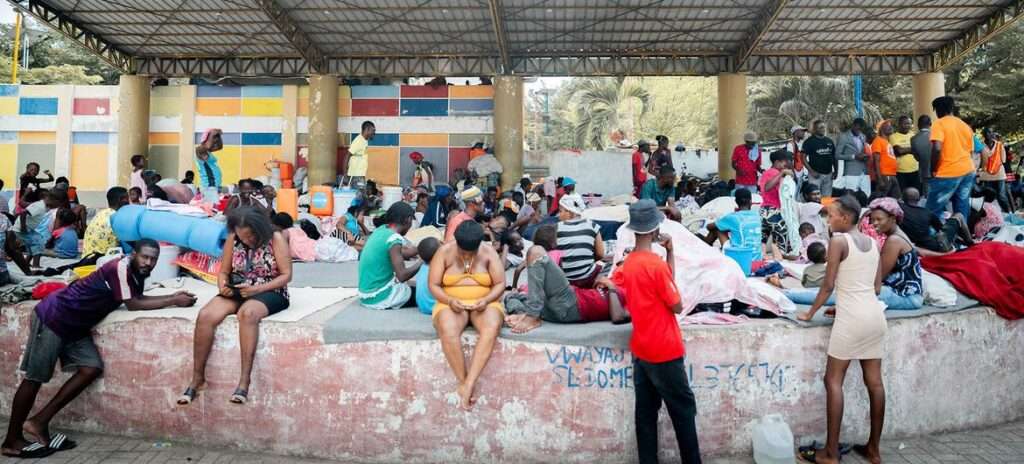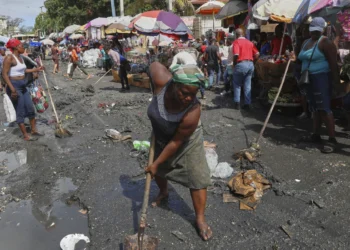Haiti’s security crisis deepened over the summer, with more than 1,740 people killed or injured between July and September, a nearly 30% increase from the previous three months, according to the United Nations.
Gang-related violence, already gripping 85% of the capital, Port-au-Prince, has surged, straining limited UN-backed efforts to restore stability.
The United Nations Integrated Office in Haiti (BINUH) warned that “In the absence of state representatives, gangs increasingly claim roles typically assigned to the police and the judiciary while imposing their own rules.”
Meanwhile, a mission led by Kenyan police officers to help quell gang violence has faced issues, with both funding and personnel falling short of the necessary levels, fueling fresh calls for a full UN peacekeeping mission to restore order.
Gang Control and State Power Eroding
As gangs continued their territorial gains, the third quarter of the year saw 1,223 people killed, with a significant portion of these deaths attributed to gang violence.
Some of the bloodshed also came from the police force, which has been implicated in at least 106 extrajudicial killings, BINUH reported. This includes cases where even children, some as young as 10, were killed over accusations of collaborating with gangs.
Of the extrajudicial killings, 96 were committed by police officers, while the remaining deaths involved Jean Ernest Muscadin, public prosecutor for Miragoâne, who BINUH states is accused of killing 36 people since 2022 under allegations of common crime or gang affiliation.
Police operations have been particularly deadly, with at least 669 people killed during these crackdowns, three-quarters of whom were suspected gang members and the remaining civilians. “Information gathered … points to a possible disproportionate use of lethal force and a lack of precautionary measures to protect the population during police operations,” the report warned.
Increasing Brutality Amid New Gang Seizures
Much of the violence has occurred in Port-au-Prince, particularly in the slum of La Saline, as gangs clash over control of key points like the nation’s main port and container terminal. Recent seizures include areas such as Carrefour and Gressier, with gangs using “extreme brutality to bring residents under their control,” as reported by BINUH.
Self-defense groups, formed last year to counter gang influence, have also added to the violence, carrying out at least 122 killings. These groups have reportedly used machetes, stoning, decapitation, and even burning or burying individuals alive.
“Children were not spared,” BINUH noted, with at least 59 children either killed or injured during this period. The Artibonite region, where dozens were killed in a recent massacre, has also suffered substantial violence.
Kidnappings Down, but Sexual Violence Endures
While gang-related violence has intensified, there was a notable decrease in kidnappings, with 170 cases reported from July to September, down from 428 in the previous quarter. Over 60% of these cases occurred in Artibonite.

Nevertheless, sexual violence remains a serious issue, with gangs targeting women and girls between the ages of 10 and 70 in incidents of gang rape, some of whom are exploited for months.
BINUH emphasized that these cases are vastly under-reported, with many victims attacked either in their homes or on public streets.
Gang violence in Haiti has left more than 700,000 people homeless over the past several years, according to recent data, and the crisis escalated further this month as gunmen attempted to take control of Solino, one of the last neighborhoods in Port-au-Prince still outside gang rule.
The United Nations and other international actors are facing mounting pressure to provide Haiti with stronger assistance. Though the Kenyan-led UN mission was intended to help manage the situation, it has lacked adequate resources and personnel.
Given the dire situation on the ground, advocates for a UN peacekeeping mission argue it may be Haiti’s best chance at restoring stability. However, any decision on international intervention remains uncertain, leaving Haiti’s citizens in an increasingly dangerous and lawless environment.
READ ALSO: Liam Payne’s Posthumous Song Postponed Over Family Concerns























